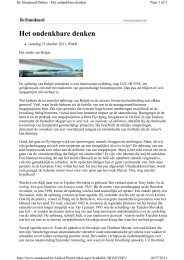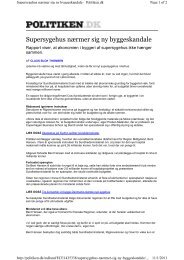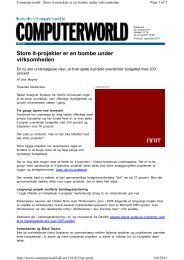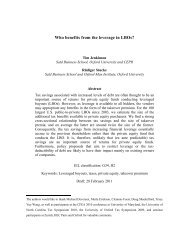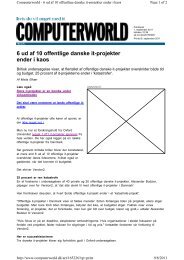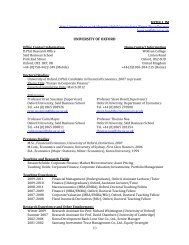Revenue Forecasting Practices: Differences across Countries and ...
Revenue Forecasting Practices: Differences across Countries and ...
Revenue Forecasting Practices: Differences across Countries and ...
You also want an ePaper? Increase the reach of your titles
YUMPU automatically turns print PDFs into web optimized ePapers that Google loves.
Another potentially important reason for differences in the forecast errors is related to the un-<br />
certainty about the business cycle <strong>and</strong> the macroeconomic development. This uncertainty is of<br />
particular importance not only because almost all taxes are affected by the macroeconomic en-<br />
vironment. A typical feature of revenue forecasting is that taxes which are strongly driven by<br />
macroeconomic developments such as corporation taxes or wage <strong>and</strong> income taxes are forecasted<br />
with indirect methods. Predominantly, the elasticity method is employed where some previously<br />
estimated elasticity is used to predict revenue growth based on the predicted development of the<br />
GDP or its components. 5<br />
Columns (3) to (5) of Table 2 provide some statistics for the macroeconomic uncertainty for each of<br />
the different countries. Note that as with the revenue forecast we are relying on the relative forecast<br />
error in percentage points. For instance, the mean forecast error of -0.544 for the UK indicates that<br />
on average predicted GDP was about half percentage point lower than actual GDP. 6 Note that the<br />
GDP forecasts are not taken from the same source as the above official revenue forecasts. This is<br />
important since in some cases the macroeconomic predictions used by the forecasters are based on<br />
their own assessment, in other cases the macroeconomic forecasts of the government are used (see<br />
below). Conditioning on these predictions would not allow us to capture the impact of possible<br />
government manipulation. Therefore, we resort to the German council of economic experts, an<br />
independent body which annually issues forecasts of the macroeconomic developments including<br />
GDP for a large group of countries. 7<br />
5 For an overview of methods of revenue forecasting, see King (1993).<br />
6 As in the case of revenue forecasts, the forecast error is computed relative to final figures.<br />
7 An advantage of these forecasts is that the one-year ahead forecasts are issued every year in November such that<br />
there are no timing differences <strong>across</strong> countries <strong>and</strong> time.<br />
12



